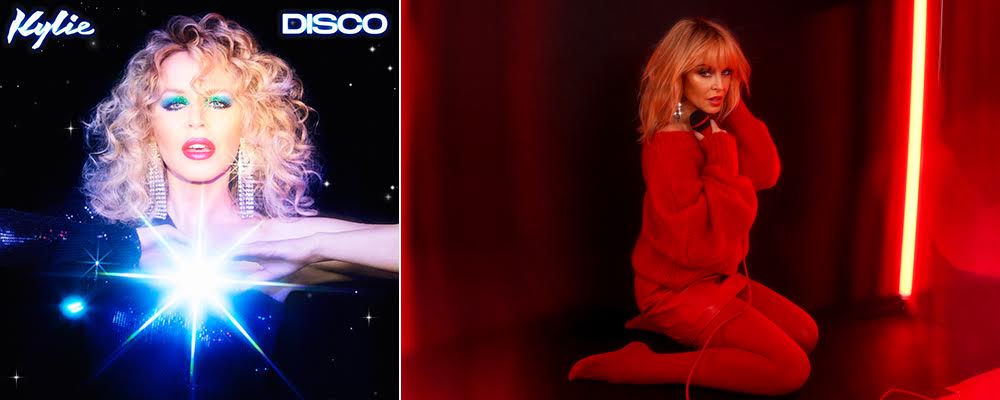Kylie Minogue Delivers the 2020 Dance Party We’ve Been Waiting for With ‘Disco’
Todd Gilchrist
Kylie Minogue is more vital than ever as an artist. Continuing to grow and evolve, she has become more empowered and authentic with each release. Minogue’s 2001 album “Fever” was a defiant act of career resuscitation that few saw coming, and since then she has worked with some of the world’s biggest producers to create a body of work that has expanded her skill set as an artist while sharpening and emboldening her voice. Her latest album, “Disco,” released in both standard and deluxe editions, is evidence that Minogue has come full circle, after almost 20 years of growth, proving herself an enduring star who is more complex and shining brighter than ever. If some of the record’s sameness can be attributed to the singer recording and completing her latest during quarantine, Minogue can be forgiven for delivering a definitive, sorely needed vaccine for empty dance floors that simultaneously embodies how much she has changed, and reassuringly stayed the same.
Suffice it to say that disco as a genre has evolved since its commercial heyday, incorporating new forms of electronic music to become the version spotlighted on Minogue’s latest album — funky, decadent and exuberant, with a glossy contemporary sheen to distract listeners from pools of heartbreak and longing bubbling in the lyrics. For example, the opener “Magic,” features a string section that would feel right in place on Gloria Gaynor’s “I Will Survive,” while “I Love It” leads with a cascading orchestral arrangement that frames a literal end-of-the-world love Minogue infuses with an intriguing urgency, like she’s unsure if even she’s convinced of its longevity.
Unfortunately absent are new collaborations with the likes of her “X” partner Calvin Harris, a producer uniquely gifted with maximizing pliable, uncomplicated voices like hers, or OG disco luminary Giorgio Moroder, who enlisted her for his 2015 comeback album “Déjà Vu.” In place of those marquee names, Minogue worked with pedigreed songwriters like Fiona Bevan (Ed Sheeran) and hit-factory production teams like Biffco (Ellie Goulding) and Teemu Brunilla (Pixie Lott). The result is a record that doesn’t venture far into new territory but showcases her voice effectively, like a sequel to literally whichever of her last six pop albums (except her Christmas album and her 2018 excursion into country, “Golden”) was your favorite. Most of the songs are built around rubber-band guitar melodies, four-four beats and a wash of synthetic keyboards and strings, while Minogue reportedly engineered many of her own vocals in the spring of 2020 in her home studio.
Several of the tracks feel like next-generation sequels, and in some cases, rejoinders, to classic disco anthems: contrary to the deceptive wrap-up of Donna Summer’s “Last Dance,” Minogue wants to wring out every last drop of sweat before the club lights come up at the end of the night on “Last Chance.” And, rather than Indeep’s admiring “Last Night a DJ Saved My Life,” she makes an impatient request on “Where Does the DJ Go?” to keep the party bumping when she’s not ready to go home after the end of his shift. Conversely, lead single “Say Something” burbles with a modernity that would mix easily with hits from pop singers 20 or more years her junior as Biffco builds her an anthem about missing your lover on the foundation of an unhurried, deeply sexy synth line.
For better or worse, tracks like “Monday Blues” recall Minogue’s “Locomotion” days, catchy but forgettable album-fillers from when she was still a pixie-voiced one-hit wonder, while she makes others like the absolutely generic “Celebrate You” seem like automatic additions to a future greatest hits package-slash-audience singalong session on her next tour. But what makes Minogue special is precisely the way that her evolution as an artist has felt natural, a display of advancing maturity and sophistication that neither rejects the superficiality of early success nor cravenly yields to the appetites of an audience that keeps getting younger and younger. The differences between these songs and her earlier ones, at least since the days of “Fever,” mostly come down to nuances and nominal details, but her confidence performing them makes the music exciting, keeps her relevant, and more than that, youthful herself. In which case, “Disco” feels simultaneously as specific and timeless as the musical genre after which it’s named, a welcome celebration of her appeal and a reminder of the most important quality a pop star needs in order for their career to last — for her to truly and consistently be herself.
“Disco” releases Nov. 6 on Apple Music.

